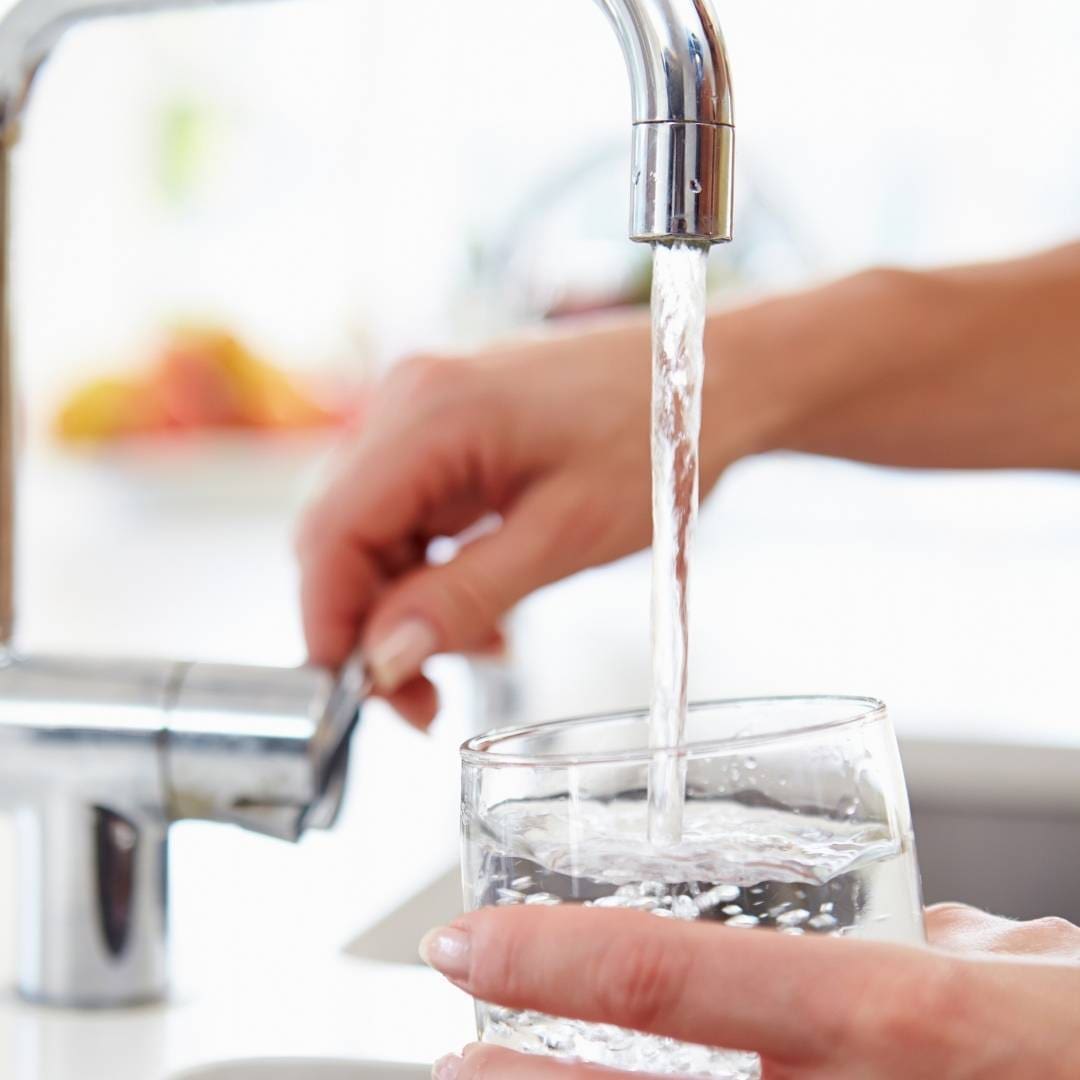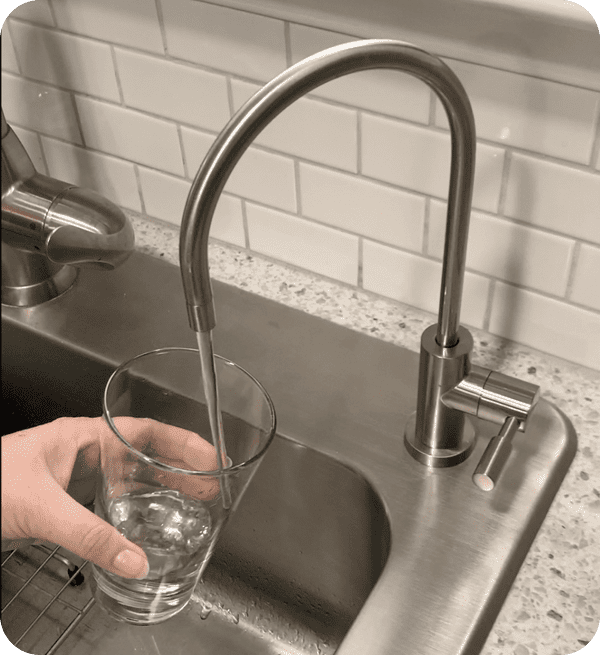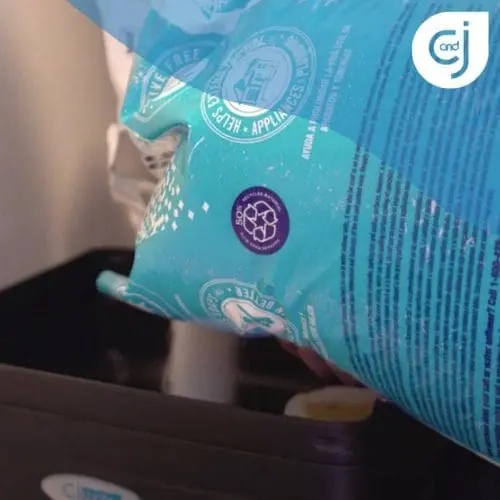Is Your Tap Water in Need of Some Help?
Tap water might occasionally taste, smell, or appear different than the light, translucent liquid you’re used to drinking. This type of water may make you sick with gastroenteritis in less than 48 hours from drinking it.
So, what do you do if your tap water tastes weird?
Unfortunately, tap water affects you every day, whether you’re cooking, brushing your teeth, or simply sipping a glass of tap water. Whenever you notice the taste of plastic, fruit, or rubber in your tap water, you should investigate the source of water problems.
Some of the reasons for your tap water’s odd taste include the chemicals used to clean your local water, environmental toxins, or degrading metal from ancient plumbing pipes.
Are you searching for tap water solutions? Look no further! The water experts at C and J Water are here to assist you.
Read on to find out what may be causing that strange-tasting tap water and how we can help improve it.
What Gives Your Water Its Distinct Flavor?
Clean water is one of the world’s most essential resources, and it is vital for all known forms of life. A unique combination of minerals, sediments, and pollutants influences the flavor of your water.
Water treatment facilities are designed to treat water to a suitable standard for cities and communities.
Municipal water is transported from its source to treatment plants, where it is tested for safety and flavor. It then goes through underground pipes into your house or business building. Any part of that journey can impact the taste of the tap water.
Home water filtration systems add a final step to that process, guaranteeing you and your family the cleanest, best-tasting water possible.
Tap Water Flavors
Water does have a flavor, and not all water tastes the same. Taste is subjective and has indicators from your biology and the water source.
My Water Tastes Dirty
Taking a massive gulp of fresh tap water can be disconcerting to discover water problems like a dirty taste. This earthy flavor is most likely due to a naturally occurring chemical known as geosmin.
Geosmin is a bacteria found in soil and algae in nearby water sources. It can be a seasonal issue, exacerbated during the warmer months when algae are in full bloom.
The good news is that although geosmin is unpleasant, it’s not toxic, and you are safe to drink water without any worry.
My Water Tastes Chlorinated
If your tap water tastes like it’s spouting pool water, it might be due to too much chlorine in your water.
Municipal water sources often employ modest chlorine levels to make water safe to drink, and while it’s not as much as pool chlorine, it may have a significant impact on the flavor of your tap water.
Chlorine is safe and necessary for maintaining clean tap water as it kills bacteria and algae. If you dislike the taste of chlorine in your water, leaving it in an open container in the refrigerator can assist in evaporating the chlorine, giving it a fresher flavor.
My Water Tastes Bitter
Bitterness in your water indicates the presence of copper. Copper is a naturally occurring metal used to build many parts for plumbing systems. It can enter your water as it flows through the plumbing system.
Keep in mind while some copper is required for good health, too much may be detrimental. You can taste copper in water once it reaches 1.3 mg/L, although it is not a health risk until it exceeds 60 mg/L.
If you feel anxious, it is always preferable to be safe and get your water tested. Call your local water services providers and inquire about a free water quality survey.
My Water Tastes Salty
If you’ve noticed a salty aftertaste in your tap water, you have a high concentration of chloride ions in your water supply. This problem is caused by irrigation drainage, so residents of coastal locations might notice it as seawater enters their water supply.
Sulfates in your water supply are probable sources of your water’s salty flavor. Because sulfates occur naturally in soil and rocks, groundwater takes up sulfates as it flows through the earth.
Be careful! If the concentration of sulfates exceeds 500 mg/L, you may experience unpleasant side effects.
My Water Tastes Metallic
Whenever you notice a metallic taste in your water, you’re probably drinking metal. This is because trace metals like iron, manganese, zinc, copper, and lead are often present in older plumbing.
Relax. Fortunately, trace metals don’t pose a health risk. There is no danger from any metals listed above if they are present in small amounts.
But still, it is essential to determine the cause of the metal taste. If there’s any lead present in your water, you and your family could get severely ill.
My Water Tastes Like Gasoline
Water that tastes like gasoline may mean your water source has been polluted by a nearby fuel source or contamination from a dead animal that has fallen into your water system.
This is one of the tastes and smells you should deal with immediately. Contact a plumber or water treatment service as soon as possible.
My Water Tastes of Rotten Eggs
The most common adverse effect of drinking water tainted with sulfur-creating bacteria is a taste of rotten eggs that lingers on your tongue.
Water may have a horrible taste due to naturally occurring bacteria, sulfates, or hydrogen sulfide produced by the degradation of organic matter. Though it might taste bad, this type of water contamination is typically safe.
If your hot water tastes like rotten eggs, it may be caused by a chemical reaction in your water heater rather than your water source.
My Water Tastes Sweet
Water with a pleasant, sugary aftertaste may indicate a high concentration of naturally occurring minerals. It may also suggest an imbalance in your water’s alkaline or pH levels.
In either case, sweet-tasting water is generally safe for human consumption.
My Water Tastes Like Nothing
If you drink a glass of water and it has no taste, you’re probably drinking distilled water or reverse osmosis (RO) water.
These treatments remove most of the magnesium, salt, and other minerals from tap water. RO water is, therefore, among the safest water you can drink.
Ignorance of Water Filtration Equipment
If you’ve been using your reverse osmosis system (or any other filtration method) for a while and your water has suddenly changed in flavor, your system probably needs maintenance.
Mold and algae form within neglected water filtering equipment. Ensure your filters are replaced and clean accessible system components regularly.
 Solutions for Your Water Problems
Solutions for Your Water Problems
Groundwater treatment differs from community to community and from well to well and depending on the water impurities present in that area.
Treating tap water is essential to maintaining the highest quality drinking water. Water is pumped from the ground to eliminate some impurities, or municipal bodies may add chlorine to the water if bacterial or parasite infection is a problem.
Surface water treatment includes coagulation, flocculation, sedimentation, filtration, and disinfection. Similarly, safe drinking water necessitates a comprehensive strategy that considers the source of water, treatment methods, and distribution infrastructure.
Poorly maintained water distribution systems may generate unpleasant tastes and odors, increased chlorine consumption, or bacterial colonies and biofilms.
To ensure none of these issues impact your family, you can treat your tap water at home with a water filtration system.
What Should You Do if You Dislike Drinking Water?
If you dislike the taste of water (even after treatment), you might have a hard time forcing yourself to drink enough water. Thankfully, there are several ways to improve the taste of water.
Some pointers to help you keep hydrated and enjoy your water drinking experience more include:
- Adding citrus fruits, such as lemon and lime, to enhance flavor and add vitamin C
- Adding fruits or herbs like strawberries, raspberries, ginger, or mint
- Carbonating your water
- Adding flavored ice cubes made from fruit juice or other tasty liquids
- Using sugarless water-flavoring powders
Drink Pure Tap Water and Stay Healthy
If your tap water has a different taste or smell, the best way to fix it is to filter your water before drinking.
Although most tap water taste changes are harmless to humans there are some that may make you sick. So, it’s a good idea to have a professional come to look at your system and install a filtration system.
Let C and J Water assist you in determining your water problems and recommending the best tap water solutions to you. We even offer financing to help pay for any treatments you may need.



 Solutions for Your Water Problems
Solutions for Your Water Problems

